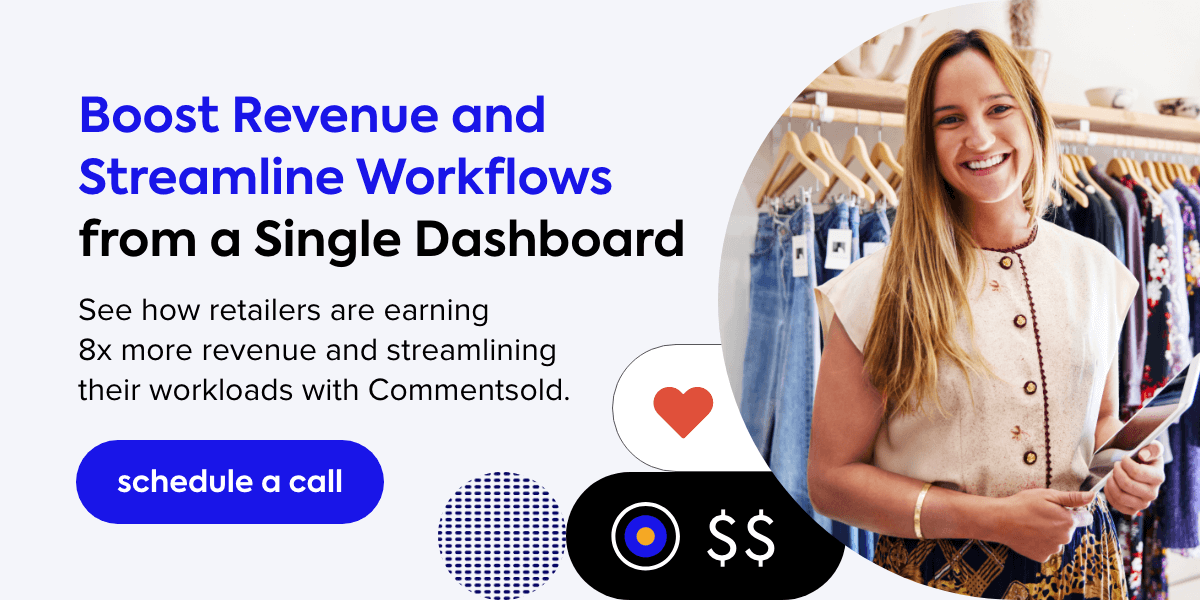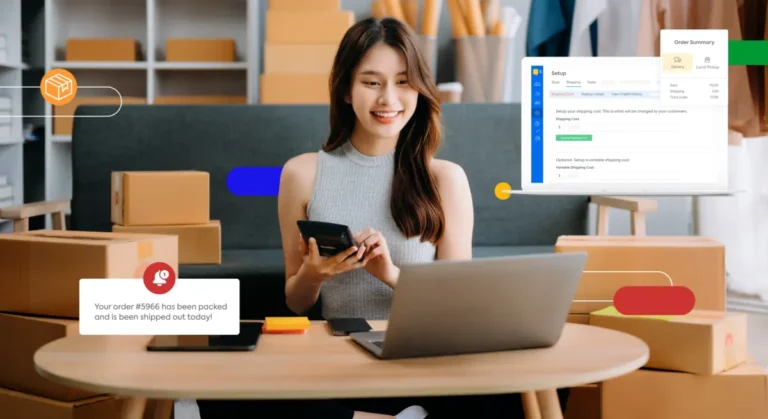Running a successful e-commerce business is a major feat: it takes time, effort, energy, brains, support, and capital. While big retailers like Amazon and Walmart have endless resources to help establish success, for independent e-commerce sellers, achieving the same results often requires a lot more effort and strategy. One simple way to help your business level up is by adopting a point of sale (POS) system.
What’s a POS system?
A POS, or point of sale, system is a hardware-software combination used by sellers to collect payments from their customers. POS systems typically consist of a cash register, barcode scanner, receipt printer, payment terminal, and a software that ties it all together.
Although designed to handle customer-seller transactions, POS systems can perform other functions like tracking inventory, managing customer data, generating sales reports, and analyzing sales trends. Some modern POS systems even provide advanced features like integration with online marketplaces, support for mobile payments, customer loyalty programs, and more.
Do I Need a POS System?
The right POS can serve as the backbone of both e-commerce and physical retail businesses. To fully utilize a POS’s capacity, sellers must recognize that a POS system is more than just a handy tool for brick-and-mortar stores. A POS system acts as the central hub for customer transactions, inventory management, and sales reporting, making it easier to keep track of everything in one place, be it a physical or online store.
Without a POS system in place, your retail business risks losing precious work hours spent manually tracking sales and updating inventory. The right POS system can help you gain valuable insights into your business performance, recognize sales trends, understand customer behavior—even transform in-store customers into online shoppers through marketing automation and make data-driven decisions that can help grow your business.
A POS system also provides secure payment processing and the storage of sensitive customer data. This protects your customers and your business from potential fraud or security breaches while evoking a sense of trust and security towards your business.

Which POS Features Should I Look For?
To choose the right POS system for your retail business, it’s helpful to understand what’s currently available. From standard features, like basic order management, to full-service solutions that cover a multitude of tasks, it’s important to choose a system that fits your business’s specific needs, no more, no less.
With endless POS features available today, you can choose the right POS to:
- Manage invoices and transactions
- Integrate suppliers
- Handle orders and fulfillment
- Track customer data & purchase history
- Oversee inventory & stock management
- Monitor sales & generate customizable reports
- Manage multiple storefronts from one dashboard

How to Choose the Right POS for Your Business
Choosing the right POS for your retail business really depends on what you need. Ask yourself the following questions to determine if the features below fit the requirements of your business.
1. “Do I need my POS system to integrate with other platforms?”
You may already be using a variety of tools to manage business operations, like an e-commerce platform, payment processor, or shipping service. A POS system that integrates with these platforms and other tools can be the essential bridge that ensures a seamless flow of information and helps avoid errors.
2. “How important is automated inventory management?”
One of the most critical functions of a POS system is automated inventory management. A good POS must be able to accurately track inventory levels, update stock counts in real-time, and provide up-to-date information to you as a retailer without intervention.
3. “Do I sell on multiple platforms?”
With social selling and live selling kicking up a storm in e-commerce, chances are you’re selling on multiple ‘storefronts’ to stay competitive. You might be present on Facebook, Instagram, TikTok, your webstore, and mobile app in addition to selling in physical stores.
This makes using a POS system paramount. The right point of sale system can create a positive buying experience that transitions effortlessly online and in-store, handling all your physical and digital storefronts without hiccups while keeping track of transactions and inventory from a single dashboard.
4. “Do I track user data and behavior?”
A POS system should also provide a wealth of information about a business, including revenue reports, trending purchases, inventory count, and more. The right reporting capabilities in a POS system will provide the insights necessary for business growth, giving retailers complete information and control over their operations.
5. “How comfortable am I/my employees with new technology?”
Some POS systems are built with ease of use in mind. Even if you or your employees are comfortable with complex software, sometimes choosing the easier option can save time, effort, and energy—which is never a bad thing.
If this sounds like you, make sure you read about ease of use when looking for a POS solution to ensure it won’t be more of a headache than a solution. Make sure to read customer reviews to get a full rundown of what you’re investing in. Don’t forget that POS systems are often used by employees several times a day, and it is important that your choice is intuitive and user-friendly. A poor user experience can lead to mistakes and slowdowns in transactions, impacting customer satisfaction and employee efficiency, both of which contribute to reduced sales.
6. “How much money can I allocate to new tech?”
A good POS system should balance cost and features and allows you to process orders easily, while giving you loads of other features to choose from. But choosing a top-tier POS doesn’t have to burn a hole in your pocket. Many feature-rich POS systems are affordable and even offer free trials.
A high-quality POS system can save you and your employees hundreds of hours that would otherwise go into manual tracking and reporting of sales and inventory, which translates to monetary savings.
Don’t forget that the right POS system can also help your business save money in the long run. Time typically spent on workarounds or system disconnects can be replaced with a fully integrated backend and point of sale system that does it all without intervention.
Boosting Your Business With the Right POS
A point of sale system is an essential tool for any retail business, both online and offline, acting as a central hub for transactions, inventory management, and sales reporting. Think about it like this: a POS is to a business what a steering wheel is to a car. Just as a steering wheel helps a driver control the car’s direction and movement, a POS gives retailers better control over the direction and growth of their business.
Choosing the right POS system can impact the customer experience and, therefore, the overall success of your business. To choose the best system for your e-commerce business, you need to consider factors such as integration with other platforms, multichannel tracking, accurate inventory management that prevents overstocking and overselling, and reporting capabilities.
The right POS system will enable you to streamline your business operations, save working hours and resources, increase sales and profits, and use valuable insights to catapult your business performance and growth to the next level!





